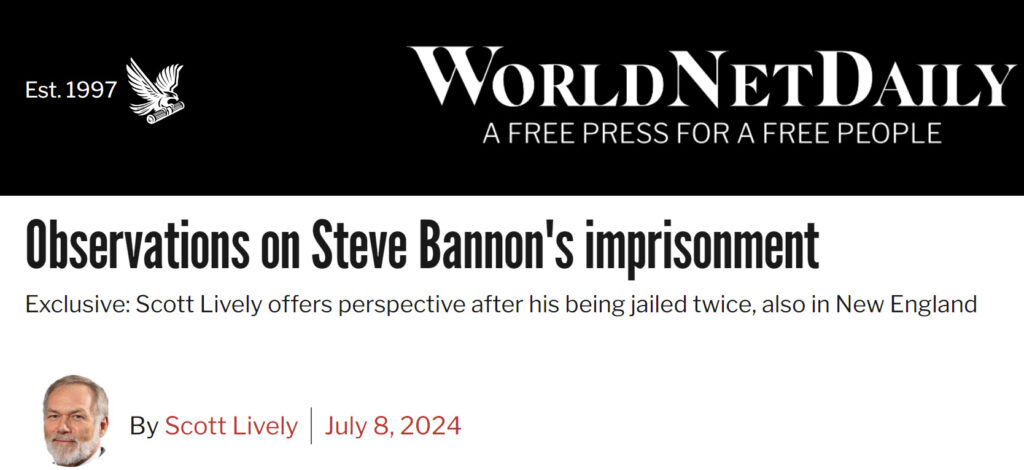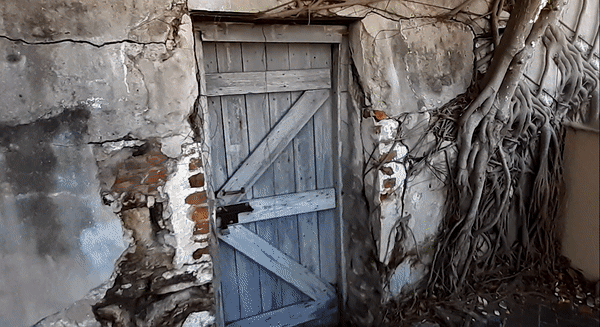
My regular readers know that I have a slightly unusual writing style that typically features first-person observations and self-disclosures in the context of offering reasoned analysis on politics, history and theology. Since my early teens I’ve intentionally sought out diverse life experiences specifically for their storytelling value, and since my late 20s (when I was saved and healed from 16 years of alcoholism and drug addiction in prayer to Jesus Christ) all those experiences have become fuel and fodder for a lifestyle of testimonial evangelism.
My writing is my primary medium for fulfilling my mission, and thus nearly everything I write is to serve the cause of Christ by sharing truth on topics of social controversy in which my own firsthand perspectives add weight to my cautions, conclusions and predictions. The more afraid others are to tackle a topic, the more likely I am to address it: e.g., the ugly history and agenda of the LGBT movement, the hornets nest of Zionism vs. Antizionism, the balanced reality of people and places like Putin and Russia who are heavily and continuously smeared by professional propaganda agencies. This approach puts me on the “fringe” compared to other, higher-status pundits, who toe the more mainstream-conservative line, but who nevertheless read my work and occasionally adopt my talking points. Attribution would be nice, but the real satisfaction is in their de facto validation of my analysis.
Some might misperceive my style as self-aggrandizing, but it is not. I give all glory to God for any good thing in me or my writing, and I am as willing to share unflattering facts about myself and my experiences as I am to share my victories. Today I will share some very personal and unflattering facts to offer insights about the imprisonment of Steve Bannon.
I went to adult jail twice as a teenager: once at 17 and again at 19. I served a month each time in the county jail we street people called the Elm Street College in Greenfield, Massachusetts. I had been a homeless alcoholic since the age of 16 after my father’s final mental breakdown destroyed our family of eight: he staged an armed standoff with the state police in our home over my having dropped out of school – with shots and tear-gas canisters fired to the shock of my small town neighbors who gathered to watch. He was taken away that afternoon to the state mental hospital under whose care he spent the rest of his life – eventually as an out-patient. My mom lost the house after that and had to move to a smaller one where there was literally no place for me. So I was on the streets getting by as a petty criminal while I finished getting my diploma from a start-up far-left hippie “free school,” graduating in 1976, class of one, the first student to do so.
That petty-criminal lifestyle was how I ended up in jail the first time. I don’t remember the charge, but I do remember being the youngest guy in the jail, and my misfortune that an inmate’s watch had been stolen from his cell the day I arrived. Inmate justice ensued, and every person was required to walk to that cell and then another “drop-off” spot – solo – until the whole group had done so. Thus the property could be recovered with no one punished for taking it. Meanwhile the population of the tier sat together as a group at picnic tables in the common area, while the boss inmate of the tier walked back and forth haranguing the group about the evils of stealing. I would have been amused by the irony except that each time he walked past me he slapped me hard on the side of the head – indicating to everyone he thought I was the thief. I was terrified.
I had arrived shortly after a huge scandal. The Boston mob had long used this jail as their private country club and had even take over the conjugal visit room as an office. The guards were in their pocket. But two goons ruined the fun when they used their trip away for a court appearance as an opportunity to rob an armored car (but got caught). The authorities soon descended en masse on the jail and swept it clean of organized crime figures – except for one lower-level guy named Charlie who somehow escaped the net. Charlie witnessed my ordeal over the watch and took me under his wing, making me untouchable by the punks in power. The only problem was Charlie was a homosexual. Now I was very liberal in those days and that fact didn’t bother me – and no, I wasn’t raped in jail; although the truly crazy guy Charlie assigned as my body guard, Tex (sporting a “Born to Lose” tattoo on his forearm), did make one unsuccessful try.
For his part, Charlie, who owned a string of strip-clubs, tried only to recruit me into filming porn, asking me to read a script for a (hetero) porn flick and offering me a bartending job in one of his clubs. I thanked him for his protection and told him I’d think about it but in the end declined. That’s all I have space to share.
This week Dr. Naomi Wolf wrote a stirring piece on the political implications of Steve Bannon’s ordeal that also addressed the “man vs. institution” fight he will face behind bars. She titled it “What time it is: The imprisonment of Stephen K Bannon.” It is well worthy of your attention.
It caught my eye because in it she invoked the torture camps of the Nazi SA in the months following their arson of the German Reichstag – which was a theme of my recent WND column “J6 and the burning of the German Reichstag” – to my knowledge the first to cite this aspect of the famous historical event in the conservative blogosphere in years, if ever. She either read my piece or received concurrent Holy Spirit inspiration on this topic (a phenomenon I have experienced multiple times in the past with others). Either way, I was impressed.
Now “minimum security” Danbury federal prison isn’t all that far geographically from the Elm Street college (Massachusetts and Connecticut are bordering states) and probably isn’t all that different a culture for inmates in the aspects that matter most: loss of freedom, privacy, dignity and personal security.
Wolf highlighted the institutional restrictions and Bannon’s loss of connection with the outside world, but I would like to address what she cannot: the sudden and shocking immersion of an intelligent, sensitive and idealistic human being into a society dominated by predatory animals. As an inmate in any prison, even county jail, being in “gen-pop” is entirely different and separate from your relationship with the institution itself – and unlike anything you’ve experienced in the outside world.
For all his bluster and bravado in the days and weeks preceding his incarceration, as of right now Steve Bannon is just a lone man in a dangerous jungle. It’s possible he will be received as a hero by some and have an instant support network to shield him from the others, but it is equally possible he will shunned and seen as a “prized trophy” by malicious haters. In my observation most criminals, as lifetime consumers of corporate media narratives and recipients of government largess, tend to lean to the left in political matters. And it’s a hard fact that the prison guards and administrators are all members of public employee unions, even if some may be conservatives even in liberal Connecticut.
In Matthew 5:10 Jesus said, “Blessed are those who are persecuted because of righteousness, for theirs is the kingdom of heaven.” I suffered for my own crimes and stupidity while Bannon (along with most of the J6ers) is truly suffering for righteousness’ sake, but the key commonality is that he IS suffering because prison is a place designed for suffering.
What Steve Bannon needs most from us is prayer! Only God can protect him where he is.



